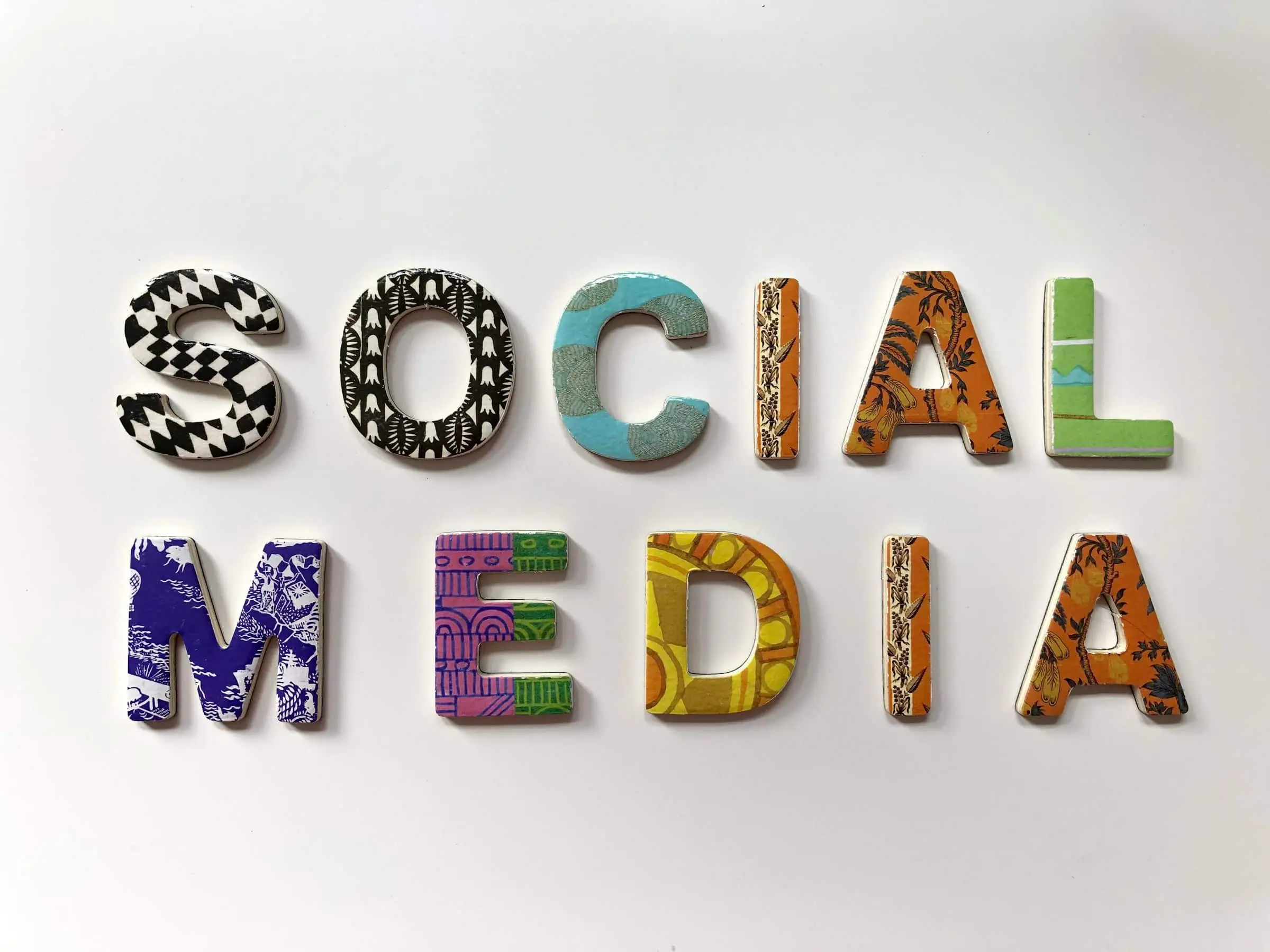
The Role of AI in Social Media Marketing for Small Businesses
Social media has become an indispensable marketing channel for businesses of all sizes, but for small businesses with limited resources, managing an effective social media presence can be particularly challenging. Enter artificial intelligence (AI) – a game-changing technology that’s revolutionizing how small businesses approach social media marketing.
Once considered a luxury only accessible to large corporations with deep pockets, AI tools for social media marketing have become increasingly affordable and user-friendly, making them accessible to small businesses with modest budgets and limited technical expertise. These tools can help automate routine tasks, generate insights from data, and optimize content to maximize engagement and return on investment.
In this blog post, we’ll explore the various ways small businesses can leverage AI to enhance their social media marketing efforts, overcome common challenges, and compete more effectively with larger rivals. Whether you’re just starting with social media or looking to take your existing strategy to the next level, understanding the role of AI can help you achieve better results with less time and effort.
Understanding AI in Social Media Marketing
Before diving into specific applications, it’s important to understand what we mean by “AI” in the context of social media marketing. AI encompasses a range of technologies that enable computers to perform tasks that typically require human intelligence, such as:
- Machine Learning: Algorithms that analyze data, identify patterns, and make predictions or decisions based on that analysis
- Natural Language Processing (NLP): Technology that helps computers understand, interpret, and generate human language
- Computer Vision: Systems that can analyze and understand visual content such as images and videos
- Predictive Analytics: Tools that use historical data to forecast future outcomes and trends
For small businesses, AI in social media marketing translates to tools and platforms that can automate routine tasks, provide data-driven insights, personalize content, and optimize campaigns for better performance – all without requiring significant technical expertise or dedicated staff.
Key Benefits of AI for Small Business Social Media Marketing
Time and Resource Efficiency
Small business owners and marketers often wear multiple hats and have limited time to dedicate to social media. AI tools can automate time-consuming tasks such as:
- Scheduling posts across multiple platforms
- Responding to common customer inquiries
- Monitoring brand mentions and engagement
- Generating basic content ideas and drafts
By automating these routine activities, small business owners and marketers can focus on higher-level strategy and creative tasks that truly require human input.
Data-Driven Insights
One of the biggest advantages of AI in social media marketing is its ability to analyze vast amounts of data and extract meaningful insights. For small businesses, this means:
- Understanding which content types and topics resonate most with your audience
- Identifying optimal posting times for maximum engagement
- Recognizing emerging trends and conversations relevant to your industry
- Measuring the ROI of different social media activities
These insights allow small businesses to make more informed decisions about their social media strategy, rather than relying on guesswork or generic best practices.
Level Playing Field with Larger Competitors
AI tools can help small businesses compete more effectively with larger rivals by:
- Creating more professional and engaging content with limited resources
- Targeting specific audience segments with personalized messaging
- Optimizing ad spend for maximum impact
- Maintaining a consistent presence across multiple platforms
By leveraging AI, small businesses can achieve results that would typically require a dedicated social media team, helping them punch above their weight in the digital marketplace.
Practical Applications of AI in Social Media Marketing
Content Creation and Curation
Creating fresh, engaging content consistently is one of the biggest challenges for small businesses on social media. AI can help by:
- Generating content ideas based on trending topics and audience interests
- Creating basic social media copy, captions, and hashtag suggestions
- Recommending relevant third-party content to share
- Repurposing existing content into different formats
- Optimizing visual content for different platforms
Real-world example: A local bakery uses an AI tool to generate weekly content ideas based on seasonal ingredients and local events. The tool also helps create basic post drafts that the owner can then personalize with their unique voice and photos of their products.
Audience Analysis and Targeting
Understanding your audience is crucial for effective social media marketing. AI tools can provide deeper insights by:
- Analyzing follower demographics, interests, and behaviors
- Identifying your most engaged and valuable audience segments
- Uncovering potential new audience groups to target
- Tracking changes in audience preferences over time
Real-world example: A boutique clothing store uses AI-powered analytics to discover that their most engaged followers are not just interested in fashion but also in sustainable living and outdoor activities. This insight helps them refine their content strategy and product selection.
Posting Schedule Optimization
Timing can significantly impact the performance of social media content. AI helps optimize posting schedules by:
- Analyzing historical engagement data to identify optimal posting times
- Recommending different posting schedules for different platforms
- Automatically adjusting schedules based on real-time engagement
- Ensuring consistent posting even during busy periods
Real-world example: A small accounting firm uses an AI scheduling tool that automatically posts their content when their target audience of small business owners is most active – early mornings and late evenings – times when the firm’s staff isn’t typically working.
Social Media Advertising
AI can dramatically improve the effectiveness of paid social media campaigns through:
- Automated audience targeting based on past performance
- Ad creative optimization and testing
- Budget allocation across platforms and campaigns
- Bid management for optimal cost per acquisition
Real-world example: A local spa uses AI-powered Facebook ad tools to automatically test different ad creatives and targeting options. The system continuously optimizes the campaign, resulting in a 40% reduction in cost per appointment booking.
Customer Service and Engagement
Responding promptly to customer inquiries and engagement is essential but can be time-consuming. AI helps by:
- Powering chatbots that can handle common questions and requests
- Identifying and flagging important mentions that require human attention
- Suggesting appropriate responses to comments and messages
- Automating engagement with followers’ content
Real-world example: A small online retailer implements an AI chatbot on their Facebook page that answers frequently asked questions about shipping, returns, and product availability, allowing the owner to focus on more complex customer service issues.
How to Get Started with AI for Social Media Marketing
Implementing AI in your social media marketing doesn’t have to be complicated or expensive. Here’s a step-by-step approach for small businesses:
1. Identify Your Biggest Challenges and Priorities
Start by identifying the aspects of social media marketing that:
- Consume the most time
- Present the greatest difficulties
- Offer the biggest opportunities for improvement
This assessment will help you focus on AI solutions that deliver the most value for your specific situation.
2. Explore User-Friendly AI Tools Designed for Small Businesses
Many AI-powered tools offer free trials or affordable plans specifically designed for small businesses. Some popular options include:
- Content Creation: Jasper, Copy.ai, ChatGPT
- Social Media Management: Hootsuite, Buffer, SocialBee (with AI features)
- Analytics and Insights: Sprout Social, Brandwatch, Mentionlytics
- Advertising Optimization: AdEspresso, Revealbot, Facebook’s built-in AI tools
- Customer Service: ManyChat, Chatfuel, Heyday
Look for tools that offer intuitive interfaces, transparent pricing, and good customer support for small businesses.
3. Start Small and Expand Gradually
Rather than attempting to implement AI across all aspects of your social media marketing at once:
- Begin with one or two specific applications that address your most pressing needs
- Get comfortable with these tools and measure their impact
- Gradually incorporate additional AI capabilities as you gain confidence and see results
This incremental approach reduces the learning curve and allows you to clearly assess the value of each AI application.
4. Combine AI with Human Creativity and Oversight
The most effective social media strategies combine AI efficiency with human creativity and judgment. Make sure to:
- Review and personalize AI-generated content before posting
- Regularly check AI-powered analytics to inform your strategy
- Maintain your brand’s unique voice and personality
- Use AI as a tool to enhance human capabilities, not replace them entirely
5. Stay Informed About Emerging AI Capabilities
The field of AI is evolving rapidly, with new tools and capabilities constantly emerging. Stay informed by:
- Following industry blogs and newsletters focused on marketing technology
- Participating in small business marketing communities and forums
- Attending webinars and virtual events about marketing automation
- Setting aside time periodically to explore new tools and features
Overcoming Common Challenges
Budget Constraints
Challenge: Many small businesses have limited marketing budgets.
Solution:
- Start with free versions or trials of AI tools
- Focus on tools that address your most critical needs first
- Look for all-in-one platforms that offer multiple AI features
- Calculate the time savings and potential ROI to justify costs
Technical Knowledge Gaps
Challenge: Small business owners may lack technical expertise or experience with AI.
Solution:
- Choose tools with user-friendly interfaces designed for non-technical users
- Take advantage of tutorials and customer support
- Consider working with a digital marketing consultant for initial setup
- Join online communities where you can ask questions and learn from peers
Content Authenticity Concerns
Challenge: AI-generated content might lack the authentic voice that makes small businesses special.
Solution:
- Use AI for first drafts, then add your personal touch
- Create templates that incorporate your brand voice for AI to follow
- Use AI more for research and analytics than for final creative content
- Balance automated posts with authentic, behind-the-scenes content
Data Privacy and Security
Challenge: Small businesses must ensure compliance with data privacy regulations when using AI tools.
Solution:
- Choose reputable vendors with clear privacy policies
- Understand what data is being collected and how it’s used
- Ensure compliance with regulations like GDPR or CCPA
- Be transparent with your audience about how you use data
The Future of AI in Small Business Social Media Marketing
As AI technology continues to evolve, small businesses can expect even more accessible and powerful tools in the near future:
Hyper-Personalization at Scale
AI will enable small businesses to deliver increasingly personalized content and experiences to different audience segments without requiring additional time or resources.
Enhanced Visual Content Creation
Advances in AI-generated images, videos, and graphics will make it easier for small businesses to create professional-quality visual content without specialized design skills.
Predictive Customer Insights
AI will move beyond analyzing past performance to predicting future trends and customer behaviors, helping small businesses stay ahead of market changes.
Voice and Visual Search Optimization
As search increasingly happens through voice assistants and image recognition, AI will help small businesses optimize their social media content for these new search modalities.
Integrated Cross-Platform Strategies
AI will better coordinate messaging across different social platforms and marketing channels, creating more cohesive customer experiences.
Conclusion
For small businesses, AI represents a transformative opportunity to enhance social media marketing efforts without requiring significant additional resources. By automating routine tasks, generating data-driven insights, and optimizing content and campaigns, AI tools can help small businesses achieve better results while freeing up time for strategy, creativity, and personal customer interactions.
The key to success lies in approaching AI as a complement to human skills rather than a replacement. By starting small, focusing on specific high-value applications, and gradually expanding your use of AI tools, your small business can leverage the power of artificial intelligence to create a more effective and efficient social media presence.
As AI technology becomes increasingly accessible and user-friendly, small businesses that embrace these tools early will gain a significant competitive advantage in the crowded social media landscape. The question is no longer whether small businesses should incorporate AI into their social media strategy, but how quickly and effectively they can do so.
Are you ready to take your small business social media marketing to the next level with AI? The tools are available, affordable, and easier to use than ever before. The future of small business marketing is here – and it’s intelligent.




